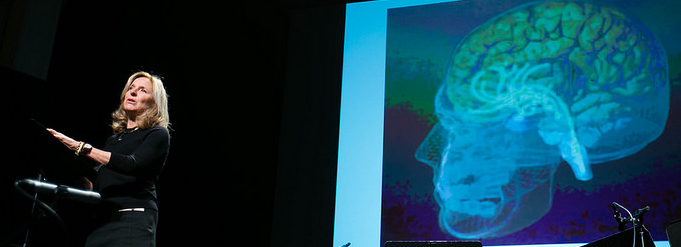All photos, including header photo: Asa Mathat for PopTech, licensed under a Creative Commons Attribution-ShareAlike 4.0 International License.
The entire Invo team trekked to Camden, Maine last week to attend Pop!Tech 2014, an eclectic gathering of “thinkers and doers from around the world” hosted by John Maeda. Juhan Sonin shares his impressions of this year's conference.
Calmer, looser, more casual than any recent Poptech.
I wasn’t jumping up and down about John Maeda’s MC’ing before the conference, since in many of his previous presentations, it was all about Maeda, all the time. But I liked his general vibe in Camden. Maeda didn’t take himself too seriously. While I wasn’t a fan of some of the marketing micro-talks (my antennae are hyper-sensitive to the sell), he won brownie points from a former critic.
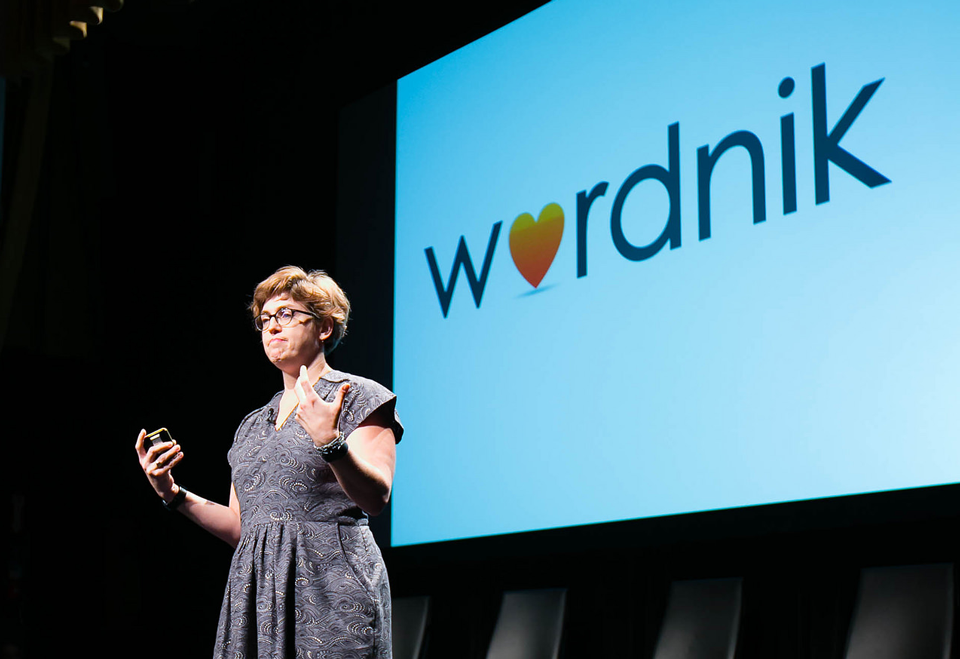
Best Talks
Erin McKean (evangelizing the Long Now Foundation ethos, i.e., good ideas take years to evolve and mature, projects take years to sculpt, metamorphose, and harden into a fully-baked service. It’s not a weekend hackathon, or a three-month sprint to a minimal viable product, or an eight-month product cycle.)
Paola Antonelli on her successes and failures of ideas and design at MOMA and outside of the museum.
Helen Fisher on the biology of personality (finally more hard science to compliment MBTI and other qualitative “brain” and behavior assessments)
Josh Klein on a tax-service for all (although the remainder of his talk needed serious honing).
Hiroshi Ishi on his work at the Tangible Media Group at the MIT Media lab and the Japanese-esque 100- or 200-year plan.
Parker Palmer on his life-long lessons on being a good human.
Worst Talks
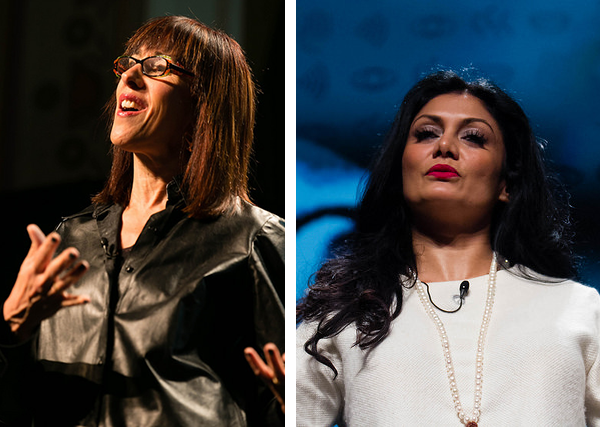
Doreen Lorenzo A meandering, meat-less speech on leadership. I was hoping for sharp insight from a seasoned Frog Design veteran.
Donna D’Cruz A vacuous self-promotion with a tinge of interestingness around meditation (if the pitch was only to try meditation, that would have been worthwhile and focused).
Good But Confusing Stories
Regina Dugan has a powerful story of fighting cancer as a kid. Choosing to live. Fighting for life. Doing all we can as families to support each other. Rock on. Then the story took a 180-degree turn into designing for death. The DARPA and Afghanistan trip thread (which lead to her young DARPA staff becoming invigorated ultimately about war) was a bizarre end to an otherwise strong story.
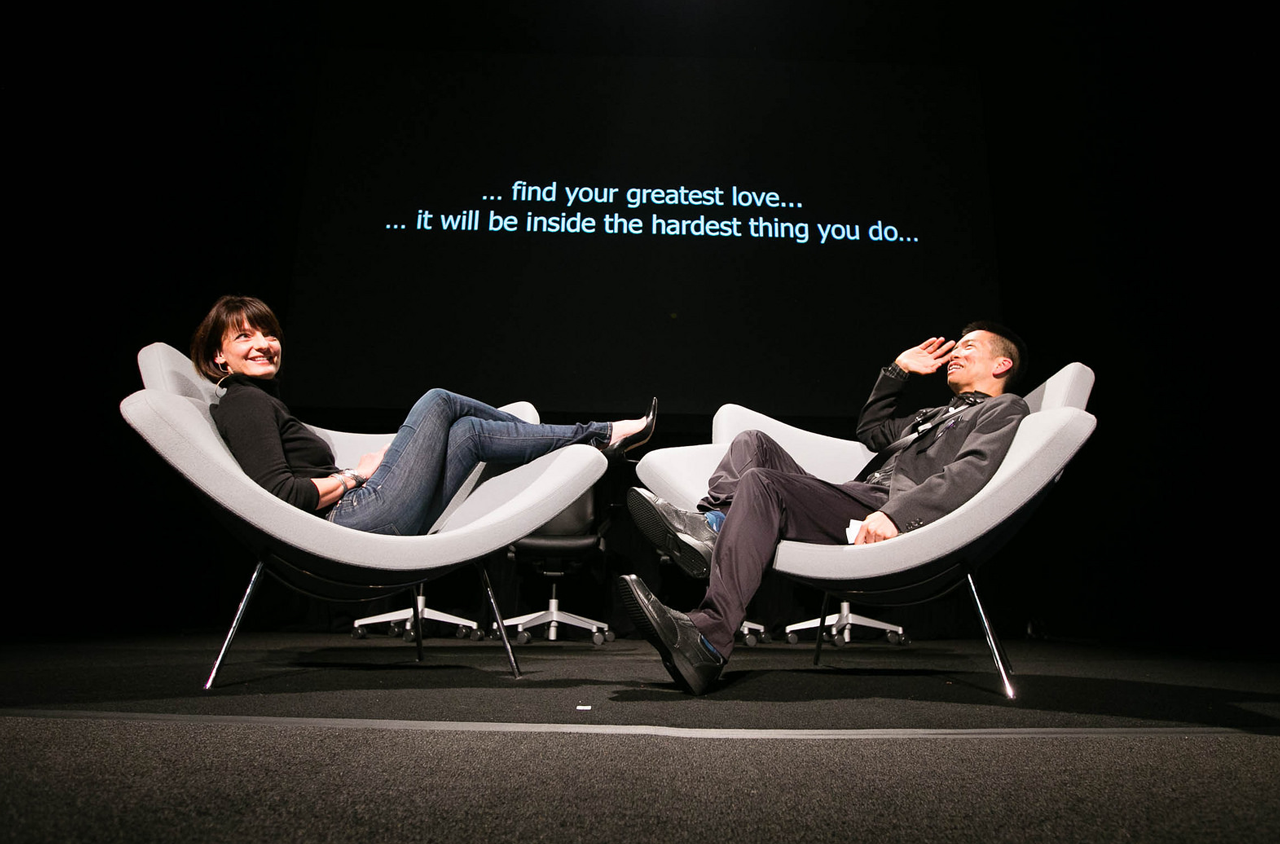
Maria Oden + Bryan Shaw. Really like the idea of an in-your-pocket, low-end retinal scanner and the Design Kitchen concept. But Bryan felt like he didn’t want to be on stage, both Maria’s and Bryan’s understanding of open source was nonexistent, and there was no success story (yet) from Maria’s efforts. And while her disdain for the FDA approval process is understandable, has she actually gone through it once or thrice?
The Fellows seemed shortchanged. Either the concept is strong enough to put some time and stories behind (and understanding the goals) or bypass completely.
For 2015
Start the show with a bang. Inject new ideas up front. Get the audience involved. PopTech 2014 started with whimpering marketing shlock and that really pissed me off. Design the message and timing!
PopTech should keep a little technical edge and include one or two science-oriented talks (like Jim Olson’s 2013 mind-bending talk on using scorpion venom/protein to paint cancer cells in humans).
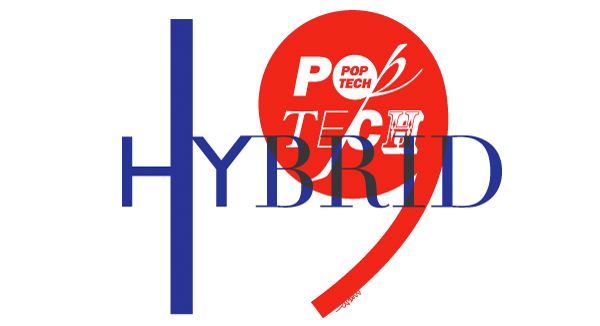
How about an amazing logo? Get the street artists to put something together! The “19” in the Hybrid mark is the wrong message. Ten years ago, PopTech used to print on badges the number of events you had previously attended. It was a good attempt to find the newbies and make sure to shepherd and guide them into the tribe. But it turned into a hierarchical model and was quickly abandoned. Toss the 19. It’s not about the years in existence but the ideas and vision.
Finally, send attendees a 120-second feedback survey right after the conference. Learn from the community!
